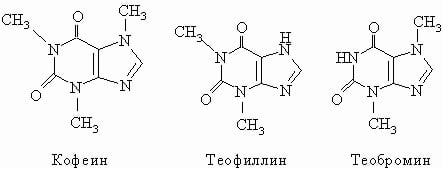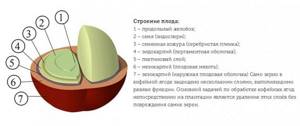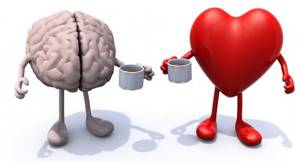Photo: opttab.ru Is coffee healthy or not? This drink is so loved and revered that few people think about how it affects the body. Scientists still cannot come to a consensus and give a concrete answer about the dangers and benefits of coffee for health.
- Coffee with milk (with cream)
Coffee composition
Chemical composition of natural coffee beans
The composition of coffee beans is very complex. It is influenced by many factors:
- climate;
- the soil;
- variety;
- storage conditions for the harvested crop.
Some sources claim that raw beans contain about 800 substances, and roasted ones contain over a thousand.
And yet the main cast remains unchanged. It can only vary in percentage.
- Squirrels. There are not very many of them - only 9-10%, the main one is amine nitrogen, which is part of many amino acids.
- Carbohydrates. Make up 50-60%. These are mainly sucrose and cellulose. In addition to them, there is also lignin, high molecular weight polysaccharides (fiber, arabinogalactan), reducing saccharides (fructose and glucose) and pectin carbohydrates.
- Caffeine. The substance belongs to the purine alkaloids. It gives the drink a bitter taste, the severity of which depends on the amount of this substance. Its amount in coffee depends on the variety. Caffeine stimulates the central nervous system, increasing heart rate and blood pressure. It also constricts blood vessels in all organs except the kidneys, which, against the background of improved blood supply, begin to work more actively. That's why after drinking a cup of coffee, about half an hour later, many people want to go to the restroom.
Structural formula of caffeine. Photo: amdipt.dk
- Tannin. Water-soluble polyphenol. Has astringent properties. After the beans are roasted, most of this substance disintegrates, giving the drink its characteristic taste and aroma.
Structural formula of Tannin. Photo: yandex.ru
- Theobromine and theophylline. Alkaloids, caffeine antagonists. They have diuretic properties and dilate blood vessels in the body, thereby lowering blood pressure.

Structural formulas of caffeine, theophylline, theobromine. Photo: yandex.ru
- Chlorogenic acids (quinic, cinnamic, ferulic, caffeic). Stimulates the pancreas and the secretion of gastric juice.
Structural formula of Chlorogenic acid. Photo: yandex.ru
- Vitamins (B1, B2, B3), macro- and microelements (calcium, magnesium, sodium, iron, phosphorus, potassium and copper).
Chemical composition of instant coffee
The basis of the powder is proteins and carbohydrates. However, the composition is completely different. Almost all manufacturers add flavorings, flavor enhancers and other synthetic compounds. The exception is organic instant coffee, which is produced by drying coffee extract. It contains a slightly higher proportion of natural ingredients.
This is interesting! Often a cup of instant coffee does not invigorate, but, on the contrary, puts you to sleep. The thing is that the powder from which the drink is prepared contains little caffeine, but it is rich in theobromine. The reason is very simple: instant coffee is made from the inner shell of the coffee bean, which contains this substance. And there is practically no caffeine in it.

The structure of coffee beans. Photo: taberacoffee.ru
Coffee with milk is difficult to digest
The chemical reaction that occurs between casein and tannins has another negative effect. It makes the proteins contained in milk difficult to digest. This product takes longer to be broken down by gastric juice and can make you feel worse.
Ground coffee Lebo “Prince”, for Turkish, 100 g 79 rub.
Coffee beans LavAzza “Qualita Oro”, 500 g 752 rub.
Ground coffee Lavazza “Crema e Gusto”, 250 g 258 rub.
Lavazza “Qualita Oro” coffee beans, 250 g 351 rub.
Ground coffee Lebo “Extra”, for Turkish, 75 g 61 rub.
Ground coffee Lavazza “Qualita Oro”, in a tin can, 250 g 400 rub.
Bean coffee Bushido “Red Katana”, 1000 g 1921 rub.
Coffee beans Lavazza “Qualita Oro”, 1000 g 1550 rub.
Choose coffee on TEA.ru
In addition, milk contains lactose (also known as “milk sugar”), a carbohydrate from the disaccharide group. The percentage of people with lactose intolerance (more precisely, low levels of the lactase enzyme) in different countries is very high: from 1–2% (Scandinavian countries) to 90–100% (SEA). Among the Eastern Slavs, lactose intolerance affects, according to research by medical anthropologist Andrei Kozlov, from 36 to 80% of the population, depending on the region of residence.
When not to drink coffee
A natural drink can have an irritating effect on the gastric mucosa and negatively affect the functioning of the cardiovascular system. Therefore, the main contraindications for drinking coffee, including with additives, are:
- diseases of the digestive system (chronic gastritis, gastric and duodenal ulcers, pancreatitis, irritable bowel syndrome, Crohn's disease, ulcerative colitis and other pathologies that are accompanied by a violation of the integrity of the mucous membrane);
- diseases of the cardiovascular system (heart failure, arrhythmias, hypertension, coronary heart disease and atherosclerosis).
Tannins contained in coffee have a positive effect on the absorption of vitamins, but can interfere with the absorption of microelements, especially iron. Therefore, people with anemia are not recommended to drink the drink without adding milk, which neutralizes them.
Coffee has tons of antioxidants
The great thing about coffee is how many antioxidants it contains. The main role of these substances in the body is to get rid of harmful molecules called free radicals, which ultimately damage our cells. Getting enough antioxidants can save a lot of trouble:
Helps prevent diabetes: Coffee is a major source of compounds called chlorogenic acids (up to 300 mg per cup). They are thought to play an important role in regulating blood sugar and metabolism, which is one possible reason why coffee drinkers are significantly less likely to develop type 2 diabetes. In fact, some studies indicate a reduction in this risk of up to 50%.
Protecting yourself from neurological diseases: The prospect of suffering from dementia, Parkinson's disease or Alzheimer's disease is certainly scary. Luckily, coffee and its antioxidants protect brain cells from all of this. Regular long-term consumption may even reduce the risks of developing neurological diseases by 65%.
Protects your liver: Although caffeine is partially metabolized in the liver, it does not appear to cause any harm: coffee drinkers are much less likely to suffer from cirrhosis of the liver, alcohol-related diseases, and gallstone accumulation.
Reduces the risk of cancer: Another reason to get enough antioxidants is that you are much less likely to get several types of cancer.
Improves your overall health: People who consume plenty of antioxidants, including those found in coffee, tend to be healthier overall. This applies to vision, skin, obesity and heart disease - even if you don't notice it's actually happening, coffee's antioxidant effects keep all your cells in good shape.
According to the FRAC (iron antioxidant strength) scale, coffee contains more antioxidants than red wine or tea.
Consequences of drinking coffee
- Coffee is especially harmful to the stomach if you drink it on an empty stomach and without milk. And this often happens when a person is in a hurry to go to work in the morning and does not have breakfast as he should. Over time, this habit will definitely affect the condition of the mucous membrane. Its constant irritation can provoke the development of gastritis and peptic ulcers.
- Coffee has no less negative effects on the kidneys. Caffeine dilates renal blood vessels. It reduces the reabsorption of water and the electrolytes it contains from the renal tubules into the bloodstream. Excessive coffee consumption leads to an imbalance of water and electrolyte balance, and the leaching of potassium from the body when drinking coffee will primarily affect the heart and blood vessels.
- Coffee is good for the liver. It stimulates the production of bile, thereby improving the quality of digestion. The grains contain substances involved in lipid metabolism, which reduces the risk of developing hepatosis - fatty liver degeneration.
- Coffee and the pancreas are a powerful tandem in the prevention of diabetes. Studies have shown that caffeine stimulates the synthesis of adrenaline, which in turn accelerates the production of insulin. However, there is also a flip side to the coin - regular use of large doses can lead to depletion of pancreatic cells.
Benefits of coffee
Coffee beans contain many beneficial substances. The first places in importance are occupied by caffeine and antioxidants, which protect cells from damage by free radicals. Oxidative processes are the cause of many diseases, primarily cancer.
Nutrients in a 240 ml cup of Americano as a percentage of the daily value:
- riboflavin (B2) – 11%;
- pantothenic acid (B5) – 6%;
- thiamine (B1) – 2%;
- niacin (B3) – 2%;
- potassium – 3%;
- manganese – 3%;
- magnesium – 2%;
- phosphorus – 1%.
At first glance, the number is not very impressive. But the rare lover of an invigorating drink is limited to only the morning portion; the average norm is usually 3-4 cups per day. Sometimes natural coffee becomes an indispensable source of vitamins, minerals and organic acids, since not everyone has the opportunity to carefully plan their diet and include enough vegetables and fruits in it.
Brain stimulant - caffeine
Caffeine is a psychoactive substance that is in first place in consumption in the world. Plants produce a bitter-tasting alkaloid to ward off insects and is found in tea leaves, cocoa beans, guarana and yerba mate. The dose of caffeine in one cup of strong espresso usually does not exceed 100 mg.
The substance stimulates the central nervous system, stimulates cardiac activity, dilates blood vessels and improves the supply of oxygen to cells. Caffeine blocks the production of the inhibitory neurotransmitter adenosine. This hormone accumulates in cells during active human activity, and its excess causes a feeling of fatigue and drowsiness. In response to a lack of adenosine, the body begins to increase the production of norepinephrine and dopamine, which stimulates brain activity, speeds up reactions and improves mood.

Coffee in moderation is good for the heart and brain
Scientists have proven that coffee prevents Alzheimer's disease, which often affects older people. Research over the past two decades suggests that those who regularly drink 3-4 cups of coffee per day have a 32-65% reduced risk of the disease. The same results were obtained for Parkinson's disease.
Caffeine stimulates the secretory activity of the stomach and improves digestion, and the increased level of adrenaline helps to break down fats faster. A number of studies have shown that coffee can speed up metabolism by 3–11%, which prevents excess weight gain and promotes weight loss. The effect becomes less pronounced with constant use of the drink, as addiction develops over time.
Coffee and diabetes
Type 2 diabetes is a serious disease characterized by high blood sugar levels. If at the initial stage the disease can be treated and compensated, then the more complicated form leads to disruption of the functioning of all body systems, including the heart and blood vessels.
European and Japanese scientists have conducted more than a dozen studies of the disease and have proven that drinking 4-6 cups of coffee a day helps prevent the development of type 2 diabetes. In the process of observing participants in the experiments, it was found that the most pronounced effect was observed in those who drank the drink prepared in drip coffee makers with a filter.
Fighting depression
A large-scale study of the effect of coffee on a person’s emotional state was conducted from 1996 to 2006 at Harvard University. Scientists analyzed the relationship between coffee consumption and depression, which is considered one of the most common mental disorders in the world. The long-term experiment involved 51 thousand men and women of different ages who drank different amounts of coffee daily.
Scientists have concluded that four cups of espresso or Americano a day reduces the likelihood of depression by 20% and reduces the risk of suicide by 56%. This effect is due to the fact that coffee stimulates the release of dopamine, which is responsible for the feeling of pleasure and is considered one of the most important hormones for maintaining mental health.
Harm of coffee for men and women
The drink can bring not only pleasure, but also problems.
Harm of coffee for men
In addition to the general negative aspects, excessive consumption of the drink can negatively affect potency. This is due to the fact that coffee contains active substances that are similar in structure to estrogens. And the more coffee a man drinks, the higher their level will be in his body. And they are testosterone antagonists, which will result in a decrease in male libido.
Harm of coffee for women
You should drink it especially carefully during menopause, as it increases the risk of developing osteoporosis. In addition, excess estrogen also negatively affects the female body, as well as the male one. In particular, this leads to thinning of the endometrium in the uterus and subsequent problems with implantation of the fertilized egg.
How to reduce the harmful effects of coffee on the body
- If you suffer from hypertension or increased nervous excitability, choose decaffeinated coffee. But you can’t get carried away with this kind of coffee either, because... the substances contained in it (including unstudied ones) may have a stimulating effect.
- Don't drink coffee at night if you have insomnia.
- If you suffer from diabetes, drink weak coffee without sugar. But no more than 1-2 mugs per day.
- If you have high levels of cholesterol in the blood, a tendency to atherosclerosis, or diseases of the cardiovascular system, use paper filters in coffee makers. Reduce the frequency of drinking instant coffee, because... it also contains cafestol, which increases cholesterol levels.
- If you have high stomach acidity or hyperacid gastritis, do not drink coffee on an empty stomach, try to avoid black strong coffee. After all, coffee will further increase the acidity of gastric juice, which can lead to ulcer formation. If you cannot resist coffee, prefer it with added milk.
- If you are prone to obesity, do not add a lot of sugar, syrups, ice cream and large amounts of milk to your coffee.
- Be sure to follow a water-drinking regime to avoid pathological reactions of the body associated with dehydration.
- To avoid leaching calcium and microelements from the body, monitor the variety of your diet and do not neglect the consumption of dairy products.
- If you are pregnant, it is better to stop drinking coffee or limit it to a few cups per month.
- To be more confident in the benefits of the drink for your health, give preference to grain coffee (if there are no contraindications) rather than instant coffee. In this case, you can avoid consuming various flavoring and aromatic additives used in production. In addition, when purchasing coffee beans labeled “Eco,” you can be sure that both the farmers and the importer are trying to avoid the use of pesticides and toxic chemicals along the entire path of the grain from the coffee tree to your coffee grinder.
To the top»>
Is it possible for pregnant women to drink coffee?
All doctors are surprisingly unanimous on this issue. During the period of bearing a child, they advise completely abandoning the aromatic drink. After all, all the beneficial properties of coffee in this case turn into disadvantages:
- the invigorating effect can cause tachycardia, lead to sleep disturbances and nervousness, and this is absolutely useless, because while carrying a child, a woman’s body is already under increased stress;
- in the early stages of pregnancy, the tonic property can play a cruel joke, toning the uterus, which can lead to miscarriage;
- no less dangerous is the diuretic effect, due to which calcium and other minerals necessary for the full formation of the fetus will be washed out of the woman’s body;
- Vasospasm provoked by coffee will worsen blood circulation in the placenta, and this will disrupt the supply of oxygen and nutrients, which can result in hypoxia and, over time, fetal malnutrition.
Instant coffee is also not advisable during pregnancy, like natural coffee. A woman’s body does not need harmful additives contained in it.
Can children have coffee?
Doctors here are unanimous in their answer - only children of high school age - from 14-16 years old - can drink natural grain coffee. It is not recommended to give it earlier, and the reasons for this are quite understandable. The harm of coffee for children of primary and school age is obvious.
The main active ingredient of the drink is caffeine. It has a pronounced effect on the nervous system. In young children, she is still fragile, so even without him she experiences excessive stress every day. In adolescence, stress from hormonal changes is added to them, and drinking coffee will only aggravate the situation, forcing the nervous system and internal organs to work to the limit of their capabilities.
What is the best time to drink natural coffee?
Coffee lovers are ready to drink it almost around the clock. However, experts have their own opinion. The best time when the drink will bring not only pleasure, but also benefit is to drink coffee in the morning. And yet, when you wake up, you shouldn’t immediately run to the kitchen. Let 1-2 hours pass after waking up.
It's all because of cortisol. This “stress hormone” is produced at 8-9 am, after which its synthesis weakens somewhat. It forms protective reactions - increases heart rate, increases blood pressure, and keeps blood vessels toned. But coffee has the same properties! Then why does the body need extra stress? It’s better to really wait and drink a cup of aromatic drink after 10 am, when the level of the “stress hormone” decreases somewhat.











